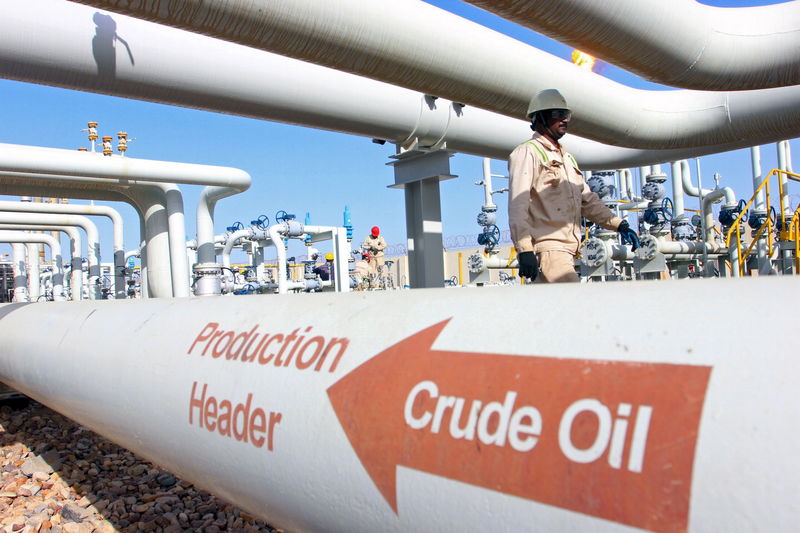Investing.com - Oil prices were under pressure on Monday, as officials from OPEC and non-member nations kicked off a two-day meeting in Abu Dhabi to discuss compliance levels on their output cut agreement.
Market players awaited fresh details on how the group can increase compliance with production cuts that began at the start of the year. According to recent calculations, compliance fell to 86% in July, the lowest level since January.
The U.S. West Texas Intermediate crude September contract was at $48.94 a barrel by 8:00AM ET (1200GMT), down 66 cents, or around 1.3%.
Elsewhere, Brent oil for October delivery on the ICE Futures Exchange in London shed 72 cents, or roughly 1.4%, to $51.70 a barrel.
Oil prices settled higher on Friday, aided by signs of a possible slowdown in U.S. shale production, but they still ended the week with a small loss amid renewed concerns over OPEC’s compliance with the deal to curb production.
OPEC and some non-OPEC producers, including Russia, have agreed since the start of the year to slash 1.8 million barrels per day in supply until March 2018.
So far, the deal has had little impact on global inventory levels due to rising supply from producers not participating in the accord, such as Libya and Nigeria, as well as a relentless increase in U.S. shale output.
In the week ahead, market participants will focus on monthly reports from the Organization of Petroleum Exporting Counties and the International Energy Agency to assess global oil supply and demand levels.
The data will give traders a better picture of whether a global rebalancing is taking place in the oil market.
Meanwhile, investors will eye fresh weekly information on U.S. stockpiles of crude and refined products on Tuesday and Wednesday to gauge the strength of demand in the world’s largest oil consumer.
Elsewhere on Nymex, gasoline futures for September was down 2.3 cents, or around 1.5%, to $1.620 a gallon, while September heating oil fell 2.2 cents to $1.626 a gallon.
Natural gas futures for September delivery ticked up 1.3 cents, or 0.5%, to $2.787 per million British thermal units.
